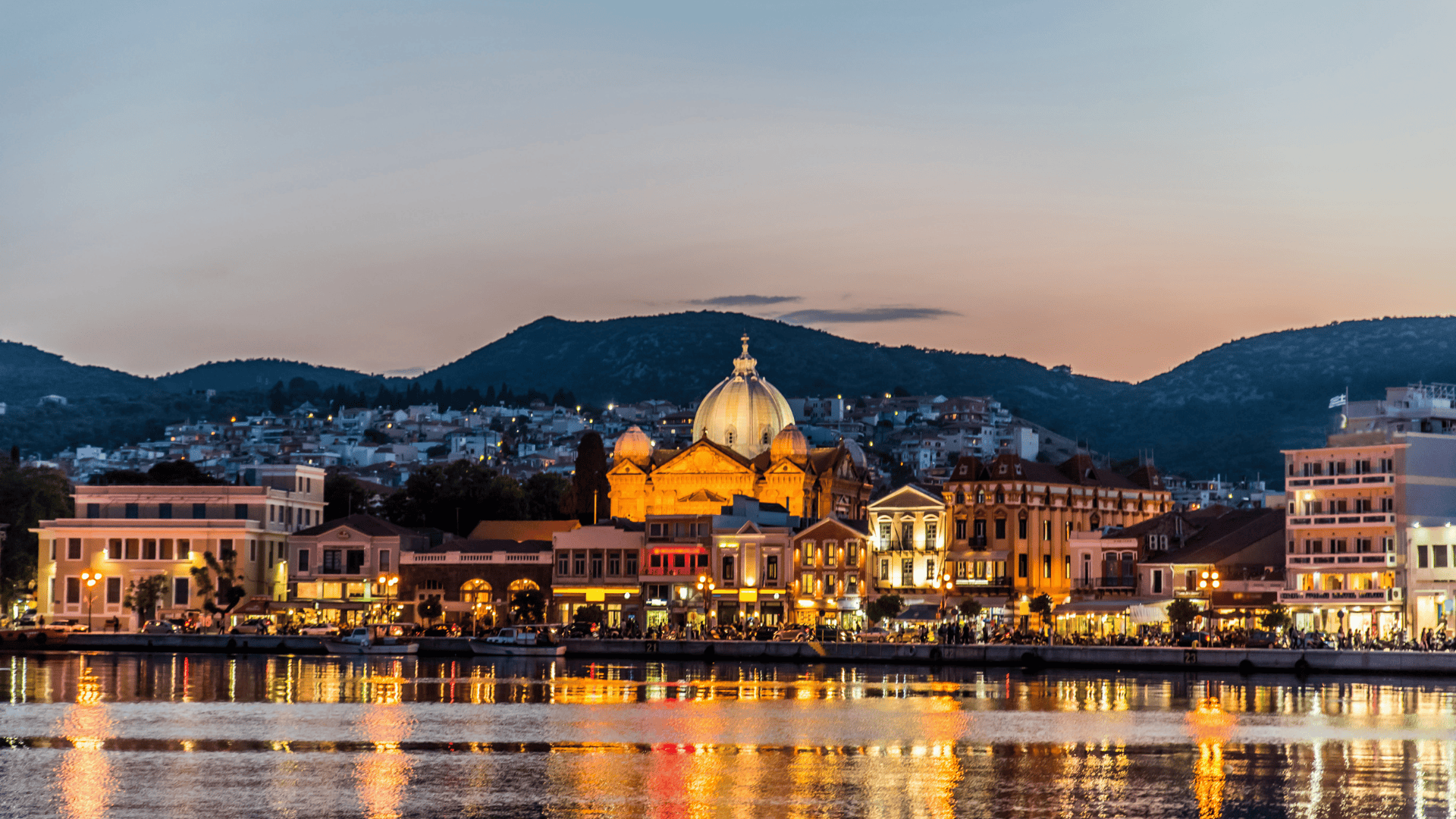
Lesvos, the third largest island in Greece, boasts a rich history spanning over 3,000 years. It holds the distinction of being the birthplace of renowned figures such as the poets Sappho and Alcaeos, the guitarist Arion, and Pittacus, one of the seven wise men of ancient Greece. This legacy continues to shape the island’s unique atmosphere, setting it apart from others.
Sappho’s reputation as a lover of her own sex has given the word “Lesbian” international recognition. Fragments of her poetry, such as “I was in love with you once, Atthis, long ago…” have contributed to her enduring fame. Lesvos is abundant in olives and fish, offering an economic stability rarely found in the Aegean region. Consequently, the island remains easily accessible to travelers even during the quieter winter months. By air, there are five daily flights from Athens to Lesvos and seven weekly flights from Thessaloniki. Alternatively, ferry services operate daily from Piraeus and less frequently from Thessaloniki.
The capital of Lesvos is Mytilene, home to a population of approximately 30,000 people, accounting for about one-third of the island’s total population. The city is strategically built around its well-preserved Byzantine Castle, lending it a captivating amphitheatrical charm. Not far from there, on the northeastern side of the city, lies the Hellenistic Theatre renowned for its remarkable acoustics, accommodating up to 10,000 spectators. In the suburb of Varia, visitors can explore the Theophilos Museum.
A short distance of twelve kilometers from Mytilene, near the town of Moria, one can visit the Roman Aqueduct, which dates back to the second century AD. Continuing north along the eastern coast, through a series of enchanting villages, one arrives at the town of Mantamados, celebrated for its exquisite cheeses and fine pottery. The next stop is Skala Sikaminias, a charming fishing village exuding undeniable allure. Finally, at the northernmost point of the island, lies the picturesque village of Mithymna (also known as Molivos), characterized by its medieval castle and traditional architecture. Molivos stands as the island’s most renowned resort, often described as “the closest place to paradise on earth.” It is fittingly associated with the arts, as it is believed to be the place where the head of Orpheus washed ashore after his dismemberment by the Thracian women. Another legendary resident of Mithymna was the lyric poet and musician Arion, who is said to have been saved by a music-loving dolphin.
Just 5 kilometers southwest of Molivos, one encounters the village of Petra, home to one of the finest sandy beaches on the island. Further south lies the village of Agia Paraskevi, adorned with numerous historic mansions and renowned for its Bull Festival, celebrated for over two hundred years. Near the village, the ruins of an ancient temple dedicated to Napaios Apollo, as well as an Ionian temple dating back to the 3rd century BC, dedicated to Zeus, Hera, and Dionysos, can be found. Moving towards the center of the island, not far from Agia Paraskevi, one discovers the modern town of Kalloni, famous for its sardines caught in the nearby bay known as the Gulf of Kalloni. Skala Kalloni, a popular summer resort with beautiful sandy beaches, is also situated on this gulf. Another well-known town in the island’s center is Agiassos, renowned for its pottery. Continuing further south, one reaches the towns of Plomari and Vatera, which boast the most splendid beaches on the island.
On the western tip of Lesvos lies the charming fishing village of Sigri, featuring a lovely little beach and an 18th-century castle. In close proximity lies the Petrified Forest, a remarkable site dating back fifteen million years. Finally, not far from Sigri, one encounters the town of Eressos, the birthplace of Sappho and Theoprastos. Its port, Skala Eressos, is a renowned resort offering a magnificent beach.
Lesvos, as evident from its classical history and the abundance of poets, musicians, philosophers, and legislators it produced, was one of the great cultural centers of the Greek world, perhaps second only to Athens in influence if not in power. As a holiday destination, a place for rest or peaceful work, Lesvos is hard to surpass. It offers the perfect size to facilitate a change of scenery, crucial to avoid any sense of “island claustrophobia.” Moreover, Lesvos provides easy access to organize trips to visit Troy or explore the coastline of ancient Ionia.